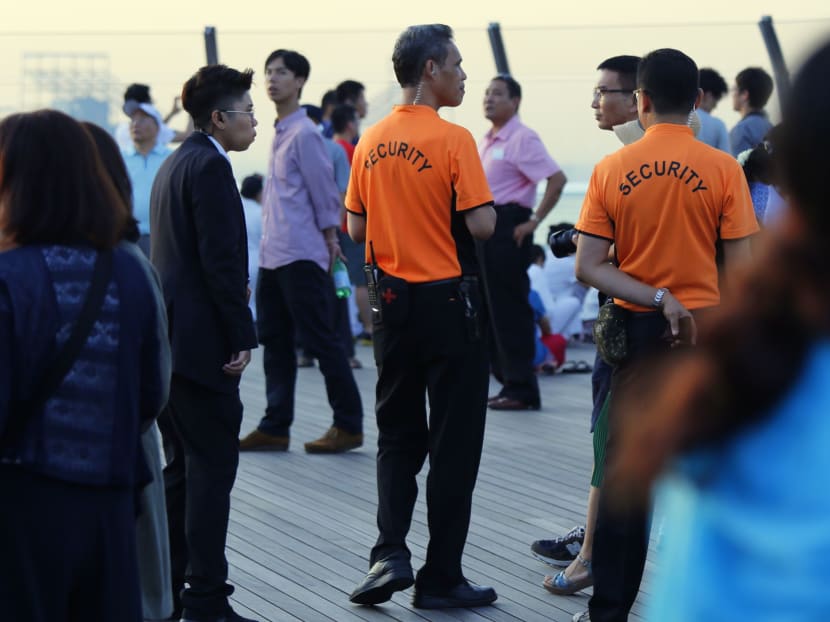Grading for security agencies tightened to improve industry standards
SINGAPORE — Security agencies will now be subject to more stringent regulatory standards that will focus more on actual assessment of their competencies, rather than just documentation.

Security officers will now be tested on how well they can execute key steps of standard operating procedures (SOPs) for various scenarios, such as bomb threats or dealing with suspicious people, under the annual Security Agencies Grading Exercise. TODAY file photo
SINGAPORE — Security agencies will now be subject to more stringent regulatory standards that will focus more on actual assessment of their competencies, rather than just documentation.
For instance, security officers will now be tested on how well they can execute key steps of standard operating procedures (SOPs) for various scenarios, such as bomb threats or dealing with suspicious people, under the annual Security Agencies Grading Exercise. The assessment, which is conducted by the police licensing and regulatory department, had previously only looked at whether such protocols were in place.
Under the revised criteria, security agencies will be responsible for sending their security officers for counter-terrorism training. The changes are part of the security industry transformation map (ITM) unveiled by the Ministry of Home Affairs on Tuesday (Feb 13).
From January 2020, security officers must attend the Recognise Terrorist Threats module, a course under the Workforce Skills Qualifications, in order to be licensed.
The grading exercise, which was started in 2006 and made mandatory three years later, assesses all licensed security agencies. It is aimed at getting them to raise security and service standards, while helping consumers make more informed choices by distinguishing agencies that invest in training and technology, and deliver high quality services.
Other revised criteria will also kick in this year to assess agencies on whether they have established robust processes in training and developing human resources, reporting and managing incidents, as well as engaging service buyers for feedback. Operational procedures will be validated through red-teaming exercises, which use different scenarios to assess the effectiveness of security measures.
The revised criteria will also look at whether security agencies have adopted technology to boost productivity and reduce reliance on headcount, such as using IT systems to manage incidents, aid supervision and facilitate learning.
Agencies will also be assessed on the progressiveness of their human resource policies. For instance, each agency will need to provide timesheets and details of their employees’ shift patterns to demonstrate that it has operated effectively without requiring its officers to work long hours regularly. It will also need to provide documents showing that security officers’ basic monthly salaries are higher than that recommended by the Progressive Wage Model.
“Overall, the changes in (grading criteria) raise the bar for security agencies by establishing clear standards in processes, people and systems,” said the Singapore Police Force and MHA on the revised standards.
This supports the vision of the security industry transformation map to build innovative companies that move away from headcount-based operating models and deliver high quality security solutions.”









